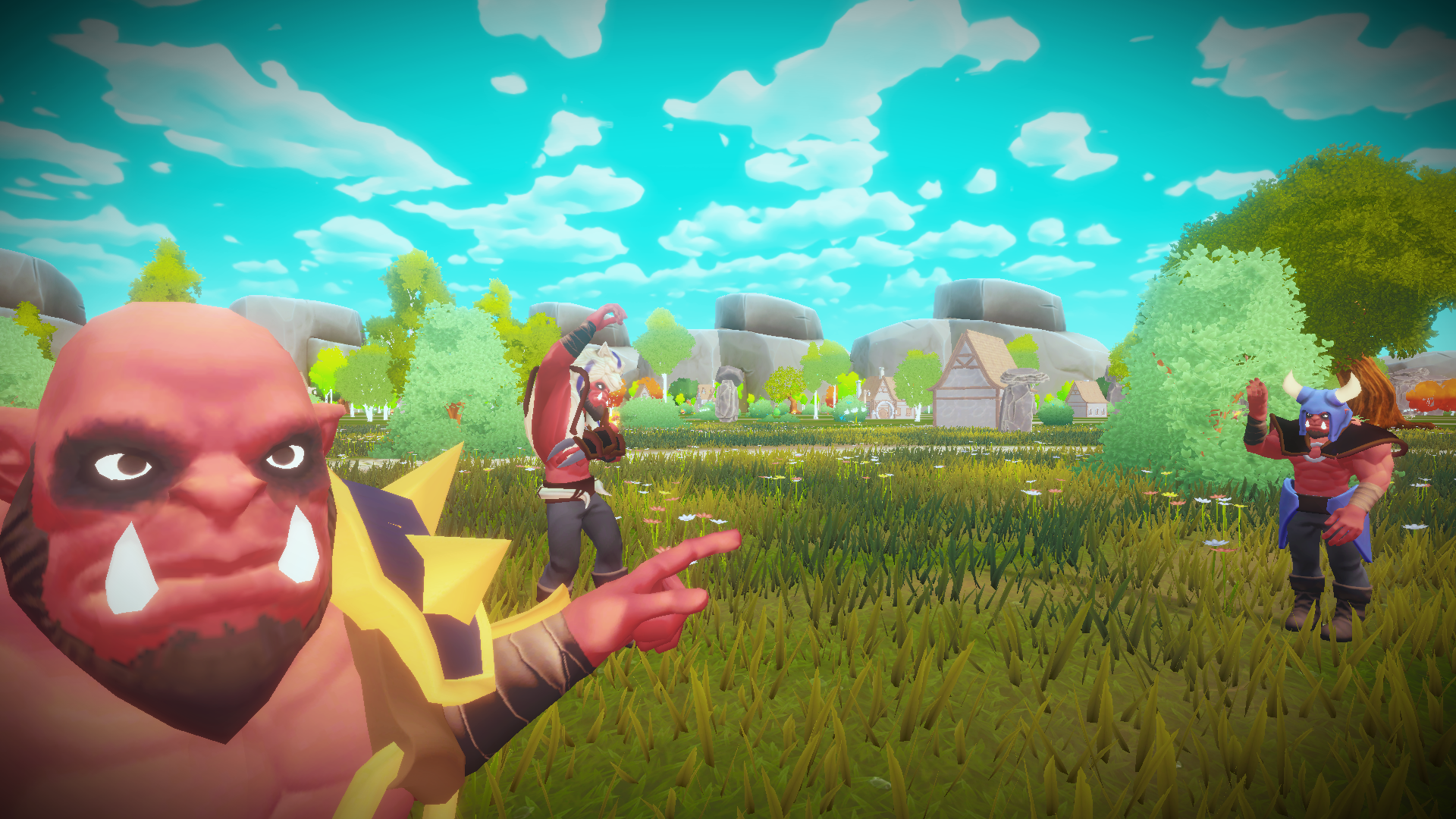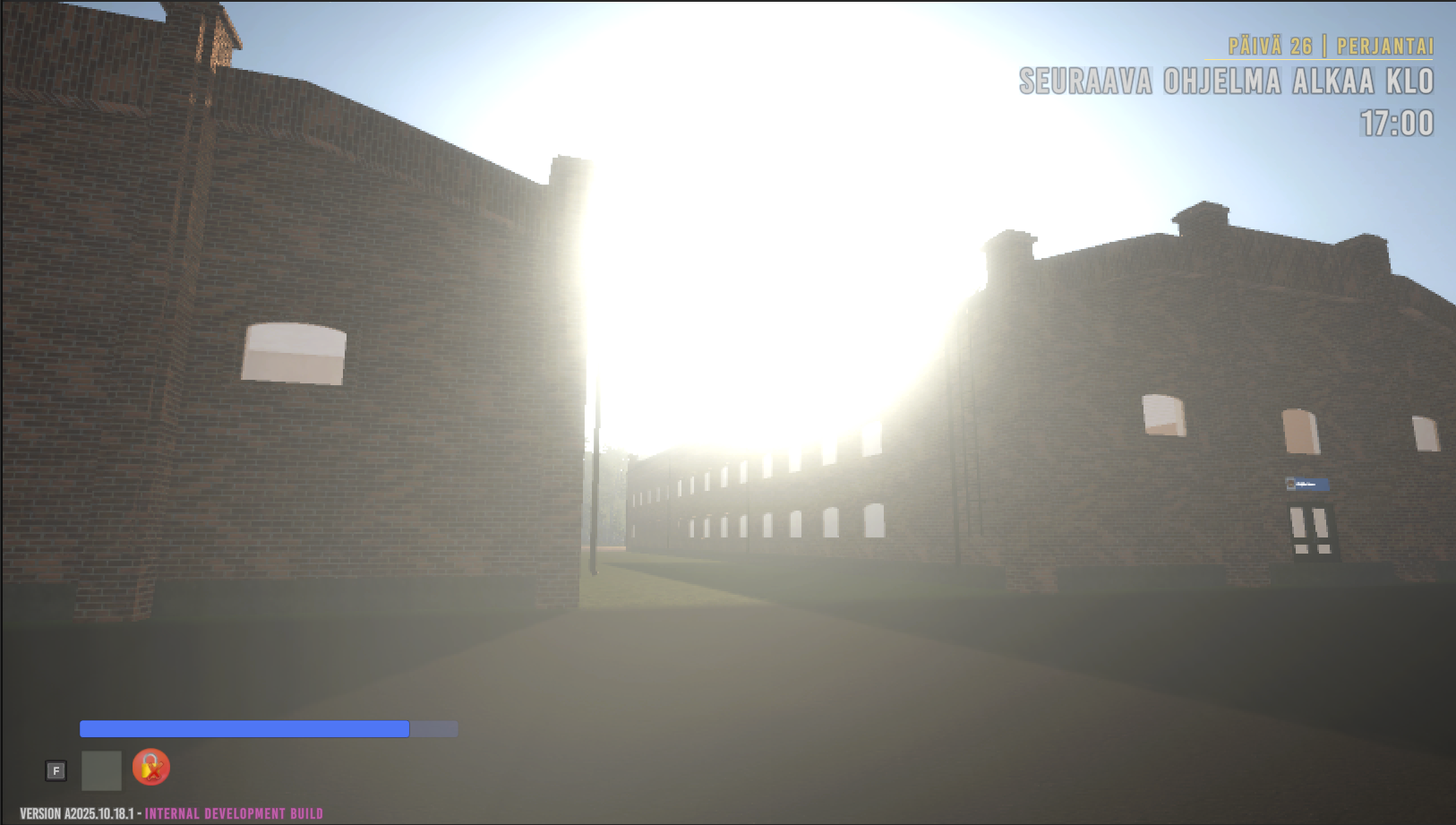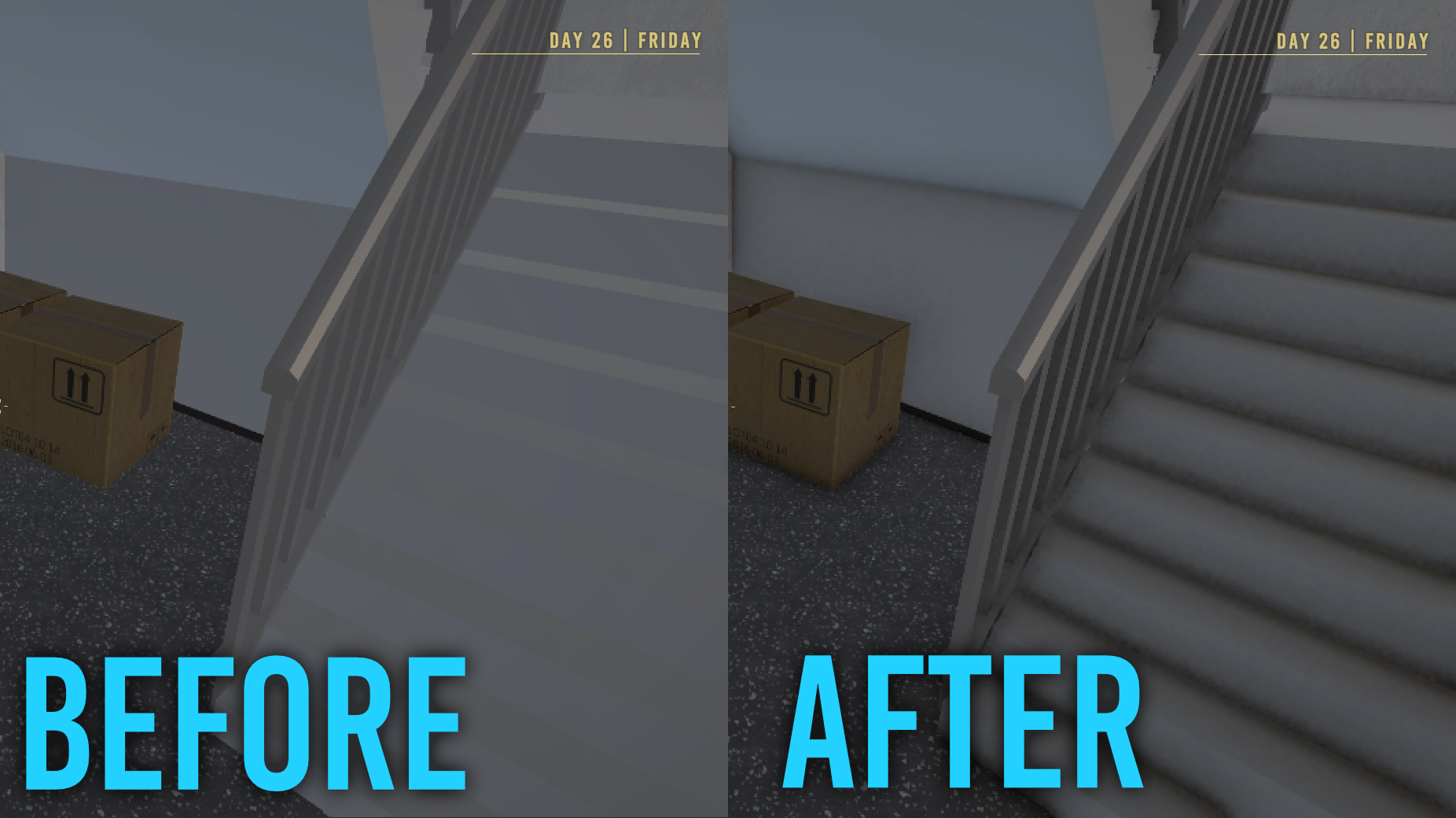
Hello.
This is the October issue of Monthly Nexus.
As mentioned later, progress this month and next will likely be crap, so this month's and next month's issues will have almost no content.
Almost none of the ingredients originating from TacticalNexus are being used; most have been substituted with artificial sweeteners, colorings, flavorings, and preservatives.
Team-Nexus is known for its """"socially conscious"""" stance. Its manifesto advocates solving societal problems like resource shortages and inflation through methods such as cloning staff via glitches, nerfing the human rights of staff who make crappy proposals, and bringing resources from pre-load worlds. It contributes to society daily by committing such acts, earning it 5 million years of imprisonment as a malicious political prisoner.
We will continue producing substitute TacticalNexus and generic TacticalNexus, striving to create a world where TacticalNexus can be made even if it is lost.
Thank you for your support.
----
◆Not much to report as progress
The graphic designer is creating character graphics for the new implementation planned for 5-0 and preparing graphic variations for the new character scheduled for the next-next implementation, while also working on a separate project.
The game designer and other staff are brainstorming ideas for the 9-1 gimmick.
Since early this month, the programmer has been sick with a cold, bedridden for two weeks, and currently sleeps about 12 hours per day.
This is something I've thought for a long time: October and November are my most hated months in the world. If I had the chance, I'd erase them from the world and the calendar.
Before 2022, I lived almost entirely alone in a rural area. This place was truly rural, so I could work late into the night.
After 2022, I moved to a somewhat more urbanized rural area. This house has soundproofing, so I can work without worrying about the time, just like before.
That alone would be fine, but the problem is that my development environment is essentially a microwave oven.
For those living in a universe where the second law of thermodynamics applies, you might be familiar with this: electricity tends to generate heat.
My computer consumes several hundred watts of power, so turning off the air conditioner's cooling function causes the room temperature to rise by about 10 to 15 degrees Celsius no exaggeration.
Basically, unless the outside temperature is below 15 degrees Celsius, turning off the AC sends the room temperature above 30 degrees Celsius.
Therefore, I have to keep the AC running constantly. However, using the cooling function during colder periods usually results in the worst air quality.
During summer, condensation forms on the AC due to temperature differences, and mold gets sucked into that condensation. So, for better or worse, mold doesn't enter the room. However, when condensation doesn't form, a massive amount of dust-like air flows in.
As a countermeasure, you have to introduce things like air purifiers, humidifiers, or dehumidifiers. But these quasi-microwave appliances raise the room temperature.
By the way, I tried AC cleaning spray a few times, but it didn't work.
Now, things have many sides, and it's quite difficult to “decide all good and evil based on a single perspective.”
Simply “judging whether something is appropriate within the scope of the current situation or the immediate future” is the general standard for evaluating things, and that's often what gets called good or evil.
At the end of the 20th century, Japan feared a population explosion. From media to creative works, concerns about “environmental problems caused by population growth” were widespread. Yet in present-day Japan, the declining birthrate is seen as the greater problem.
Back when population explosion was feared, concerns about fossil fuel and electricity depletion were common.
Since fossil fuels would eventually run out, media often discussed how dire the situation would be once they were depleted.
And in Japan, around the 2000s, attempts were made to install solar panels everywhere, and it became possible to sell electricity generated by solar panels.
However, the actual development cost of solar panels back then was high, and even considering a 10-20 year operational lifespan, the costs were significant.
I haven't thoroughly verified this, so I might be spreading pure fake news, but I suspect the prevailing sentiment was something like, “We can build more whenever we want, so let's just do this after we've used up all the fossil fuels.”
As a result, the feed-in tariff for sold electricity changed, and solar panel development slowed down at that time.
Now, in Japan, there's a renewed push to install industrial-scale solar panels (commonly called mega-solar) in various locations.
Compared to 20 years ago, technology has advanced significantly. When considering long-term operation, it's becoming cheaper to build solar panels and generate electricity than to buy fossil fuels.
On the other hand, installing solar panels can carry risks like light pollution, deforestation, and landslides caused by construction. Plus, the construction noise is just plain loud.
Of course, if you think about it on a timescale of decades or more, having such infrastructure is probably a good thing.
But if you hear loud construction noise every noon near where you live, you'd probably think, “Well, it's probably better to have it,” while making a sour face. I know I would.
This is similar to past Shinkansen rail construction or maglev rail projects.
Well, ultimately it's probably better to have it, but if they suddenly told you to move because of construction, you'd frown. Hearing construction noise for years would make you frown too.
The people asking for construction or relocation aren't necessarily doing it because they want to either. So they make a sour face.
Of course, there are also bad people who make a fashionable sour face or a business sour face to cover up something truly wrong they're doing. Every time someone like that appears, the next generation of that bad person, or someone even higher up, ends up making a sour face while cleaning up the mess afterward.
Just as those working for peace often must operate far from peaceful places, when someone aims to “create a world where people don't have to make grim faces,” that person themselves ends up working in a grim-faced workplace.
Both Japan and the world run on the backs of people making grim faces.
Now, as you can see from the above, on a century-long scale, we're currently in a relatively inefficient era for electricity, so we should be fully committed to saving energy.
However, because my air conditioner is crap, my monthly electricity bill is said to exceed $150. This subjects me to harassment and de facto slander from my family, who say things like “Seriously, you've got to be kidding me” or give me that look.
I complain about this air conditioner to the staff every time, but they show zero empathy. Each time, I think, “Robo Robo Well, I suppose creatures like you, trapped in physical cages with built-in internal combustion engines, inefficient and prehistoric beasts, can't possibly understand this suffering Robo Robo.” Yet, even as I think this, the temperature in this room keeps rising.
I'm seriously considering getting certified to service air conditioners during winter (not sure if such a thing exists) and replacing this unit with one that's easier to maintain.
Lately, I've been able to work fairly consistently for about 400 hours a month. However, this cold was particularly nasty, and combined with the abysmal indoor environment, I'll probably only manage around 200 hours of programming work this month.
I'm pretty careful about maintaining my immunity because cutting back on sleep makes you more prone to illness. When I lived in the countryside, I didn't catch a single cold for six years. Honestly, getting laid up for two weeks from just a common cold makes no sense. But I suspect the first half of next month will be much the same, probably because the AC is crap.
December through March should be manageable since I won't need the AC, making it a much easier environment to work in. As long as no weird diseases are going around, I should be okay. But October and November are hopeless.
----
◆Regarding Chapter 5-0
Considering the context, this is probably the least convincing statement I've made this year, but I'm hoping to update 5-0 by the end of November.
Realistically, it'll probably be December. (I don't think it'll be January, though.)
This stage is quite unique, featuring about five small stages (roughly 8~15F). Clearing each stage will grant small rewards (Sunstone) based on your score, and it's planned that the items you get at the start of the stage will increase.
Also, while you can't earn Nexus Medals as rewards from this stage, fulfilling specific conditions will raise the rank of the D, K, and mini Nexus Medals by one level.
However, regarding other stage gimmicks, they aren't as unique as recent stages, so there's not much else worth mentioning.
Regarding 9-1, there are quite a few diverse gimmicks, so there's plenty to write about. But since implementation is 100% next year, mentioning it now is probably premature.
Honestly, the November and December issues of Monthly Nexus won't be able to cover much about stages either...
----
◆Things We Want to Add Next Year
This isn't directly related to the main game, but we're considering implementing a feature that changes character graphics based on the player's equipped weapon.
(Accessories probably won't work)
For example, when holding a Longsword, graphics might appear on the player character's right side, or when equipped with an Auto Sword, swords might float around the player character.
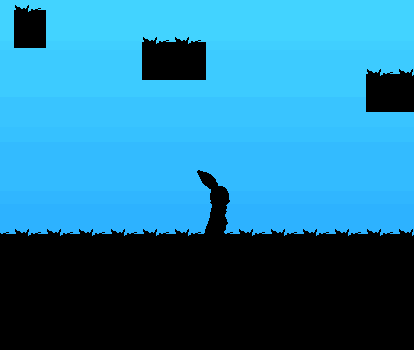
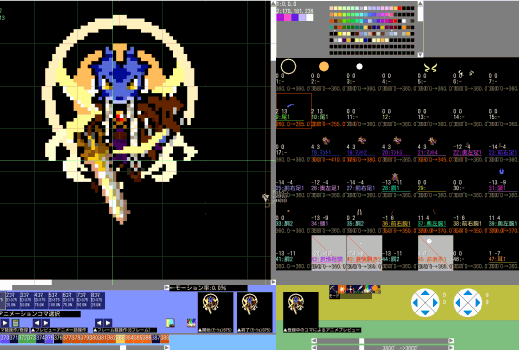
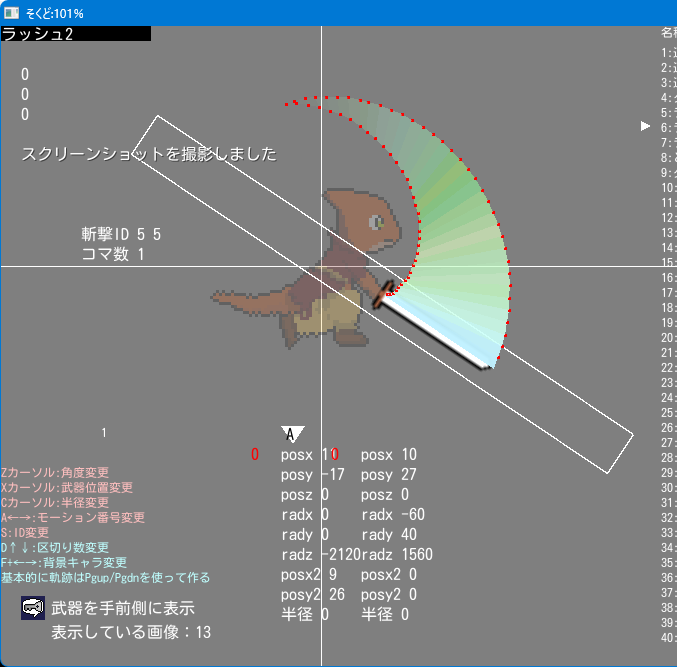
This isn't directly related to TacticalNexus, but Team-Nexus originally focused on developing action RPGs. We often worked on things like displaying weapon graphics that matched character animations and graphics, or implementing precise hit detection that matched the timing of slashes.
The pixel art editor used in TacticalNexus was originally created under the leadership of myself and a graphic designer. By creating standing graphics, it enables the output of various animation variations.
Due to this influence, there are also editors that display weapon graphics at specific positions relative to the character's location.
So, I'm considering modifying that aspect slightly to make it usable in TacticalNexus as well.
Originally, TacticalNexus wasn't intended to be developed with such serious dedication, and the character resolution is significantly smaller than in other projects. Given this, it might have been better to have made it possible to reuse other data.
----
◆Struggling with article ideas
When starting the “Monthly Nexus” project, I had prepared some article topics in advance for what I planned to write about going forward.
Originally, this month's planned theme was “The act of viewing strategy guides or tactics on TacticalNexus.”
We initially believed viewing guides for this single-player game was pointless, but we discovered that under specific conditions, “viewing guides by beginners gains a justification that can be considered reasonable.”
At first glance, this seems like a positive story acknowledging gameplay diversity. However, the core conclusion is this: the outcome depends entirely on whether the player's goal is <to view guides to obtain rewards> or <to view guides as educational material to gain something more complex than what they currently have>.
For players who “cheat by looking at answers as a means to score high on tests,” the answers are mostly poison. However, for players who “view answers as a <type of teaching material> to learn principles by reverse-engineering from the answers,” providing answers can sometimes be medicine.
The latter players probably only make up 1-2% of the population, but this 1-2% has the potential to achieve innovative breakthroughs in relatively short timeframes.
Of course, the experience of “trial and error” is necessary, but the experience gained can vary dramatically depending on timing.
When possessing a certain level of academic ability, skill, or memory, “gaining common principles and perspectives from specific strategies” tends to yield far more efficient results than learning through other methods.
For those individuals who can see the “end goal” further ahead and possess the aptitude to “treat answers as one form of educational material,” strategies become highly valuable educational tools.
----
In short, this argument doesn't stem from a beautiful context of “it's good to have players who try various approaches.” Instead, it leads to a wildly elitist conclusion that “only exceptionally talented players are permitted and justified in using certain study methods,” and it's utter garbage that promotes a sense of entitlement.
Furthermore, while I've been writing “1-2%” so far, this ratio applies to adults. For middle and high school students or younger, this ratio probably dips below 0.2%.
Furthermore, the sheer volume of text near the conclusion suggests this topic is actually incredibly complex. A detailed explanation would likely take around 800 to 1200 lines.
Steam isn't designed for crazy developers to write overwhelmingly long articles, so I can only write about 500 lines per post.
While it's possible to bundle 2-3 topics into one article, writing that much content for a single month is quite exhausting.
So, I'm considering whether to split this into 2-3 articles or scrap it altogether.
Articles about complex topics like this are the most troublesome to handle.
There are many methods in the world for solving complex problems or deciphering complex knowledge without requiring complex knowledge itself.
For example, accurately performing two-digit or three-digit multiplication in your head is quite difficult, but by using “written calculation,” almost everyone can solve such complex calculations.
However, this topic is like “written calculation for 20 digits × 20 digits” in the analogy I just gave.
When the volume of information handled becomes enormous, the number of equations that must be written along the way also becomes enormous.
“Writing concisely by omitting complex information” is not impossible, but such abbreviated writing limits its readership to those who “already possess deep knowledge and can fill in the omitted information as needed.”
Furthermore, I myself lack the confidence to write with 100% accuracy, so if an oversight or misunderstanding slips into the omitted parts, it becomes even more troublesome.
When all reasoning and thoughts are fully articulated, it's easy to spot “this part written here is wrong.” However, determining “this omitted part is wrong” within an abbreviated text is difficult.
While “inconsistencies in what is written” can be spotted quickly, “inconsistencies in what is not written” are extremely difficult to identify unless both parties share the same understanding. I find it quite, or rather, extremely unpleasant to do this with text intended for public consumption.
“Mistaken results” are one type of learning material. If the same pattern of errors accumulates, it can become data showing “people with this way of thinking tend to make this kind of judgment error.”
On a personal emotional level, having wrong results or records left behind is unpleasant. But viewed on a larger scale, these wrong results and records can become “trends.”
Furthermore, no matter how old you get or how much your abilities improve, as long as you keep challenging new things, you cannot escape “failure.”
Unless you stop and stagnate, there will never be a time when these kinds of things become easier.
Of course, only a limited number of people can read through vast amounts of intermediate calculations. Even if you didn't omit them, the number of people who could read them would still be limited. However, I personally want to write articles like this that cover as many things as possible.
----
On the other hand, you might ask, “Why does explaining <whether players should look at walkthroughs> take 800 to 1200 lines?” or “Why write content here that seems to lead to an elitist conclusion?” The reason is that this topic connects, probably quite significantly, to the concept of “desire” I've been thinking about for the past few years.
Since around age 15, I've written about 15-20KB (7,500-10,000 characters) per day. By now, I've likely written about ten times the amount the average person writes in a lifetime.
Regarding “logical writing,” there are often established methods and conventions.
In reality, I'm entirely self-taught. Reading textbooks from the University of Tokyo, for instance, often revealed that the very things I was consciously thinking about were already written down as “how to write a paper.”
The study tips I developed in my teens and twenties were: “Just increase the volume,” “Step back significantly from what you're trying to tackle, survey a broader scope, and work on what you can handle,” and “Memorize anything that looks important as soon as you see it.”
Work gradually becomes more efficient and faster with repeated practice. If you complete more work than others, your speed increases accordingly.
By tackling a significantly broader area than what most people attempt, you naturally cover more ground. Conversely, if you underestimate the task by thinking, “This is all I need to do,” you risk losing motivation when it proves harder than expected.
By “covering a wider range of topics at a higher density than others,” the sheer number of repetitions helps information solidify into memory.
In short, most things can be pushed through with sheer effort. Acquiring a body resilient enough to withstand that push meant most things worked out well.
Regarding the previously mentioned “method for writing logical arguments,” this too fundamentally rests on the philosophy just described.
When writing down your thoughts, they should be well-examined. But by endlessly repeating the process, the precision of the information naturally improves. And by thinking more broadly, your ideas will automatically become more thoroughly examined.
When formulating reasoning, it should be considered from multiple angles. However, if you maintain the mindset of “covering a broader range of topics than others,” it naturally becomes multifaceted.
Presenting in front of people is, in essence, “something you do by taking up others' time.”
Since you're taking their time, it should be excellent. But if you cover a broader range of topics and do so with greater density than others, it naturally becomes excellent.
Saying “I've mastered through self-study what others teach” sounds impressive, but fundamentally, if you have the grit, you'll naturally master it.
Or rather, if you keep in mind that “you shouldn't try to take the easy way out” and “the time for taking it easy will never come,” and you have the grit to keep at it, it basically happens automatically.
Most people in their teens and twenties are weak when it comes to “working harder than others.” In modern Japan, it's physically hard to push yourself to the point of death, so you could get by by identifying your own limit line and working or striving just below that level.
(In my case, my parents often told me stories about how, in the old days of manual labor, inefficient workers were killed in accidents disguised as accidents. So, I used that as my benchmark, thinking, “If you want to turn what you love into a job, you have to accept that getting yelled at or humiliated in public is normal, and you need to be prepared for occasional beatings or all-nighters.”
The place I was at back then had a good environment, and I never actually suffered any physical injury. But being yelled at was routine, and suddenly having to work 20 to 30 hours straight would happen occasionally.
This wasn't just me; even people much older than me were generally in the same boat. So I decided fairly early on that “rather than trying to take it easy, it's better to get used to this environment as the norm.”
----
Now, until several decades ago, writing on paper was the norm. Paper took up space, so compared to today's keyboard-based writing, the ease of composing and revising text was vastly different.
In Japanese schools, when writing essays or similar assignments, it was standard to use “manuscript paper” sheets designed to hold up to 400 characters.
During my elementary and junior high school years (and even through high school and beyond), I absolutely hated this essay-writing task.
After all, if there was even one missing or extra character, I'd have to rewrite a whole line or two a task with the worst possible cost-benefit ratio. Plus, while I could read kanji easily, writing them was a struggle.
By around age 7, I could type about 5 characters per second (now it's about 15), which is dozens of times faster than handwriting.
Of course, from the teacher's perspective, having students write essays and put their thoughts into words is important.
And it wasn't an era where fast typing was commonplace it still isn't, really so I think handwriting should be the standard for essays, as it's the easiest method for most people.
Therefore, I don't blame the educators, but regardless, every time an essay assignment came up, I'd make a sour face.
Such a “400-character essay” is still considered a long piece by general standards, but on Twitter, it's equivalent to just three slightly longer tweets.
I was more the type to write long pieces frequently when I wanted to organize my thoughts or keep records, rather than just writing whatever came to mind. In that sense, I think I was unusual.
However, people who write 50 to 100 tweets a day aren't as rare as you might think.
And that was a task nearly impossible to achieve physically just a few decades ago.
Paper and notebooks are commonplace, but rereading them is cumbersome.
When you want to revisit something, you have to hunt through shelves for the notebook containing your records. Plus, someone like me, who's terrible at keeping things organized, might even lose an important notebook.
On the other hand, rereading text on the internet or a computer is incredibly easy. Furthermore, depending on the tool, you even have search commands.
The “culture of writing” has existed since ancient times, but its truly rapid development and advancement only began in the last twenty-odd years.
While SNS and chat can sometimes reveal the internet's darker side, the ability to “exchange thoughts in real-time with people far away” is incomparably superior.
Of course, it depends on the quality of the people and the community, but the tendency that “exchanging opinions with many people to achieve deeper insights” is superior to “writing introspectively alone to contemplate things” is, I believe, made clear by the “community records” we discussed recently.
If powerful individuals who have invested enormous amounts of time band together, well, winning becomes quite difficult.
----
From my perspective, the active players on TacticalNexus and Discord seem predominantly in their 30s (and 40s, followed by 20s). This generation is likely the most proficient in “reading text” and “writing text” in all of history.
Especially those who were online from a young age have likely written and read all kinds of text.
While the emergence of “chat AI” capable of providing feedback and editing text at speeds impossible for humans suggests a breakthrough is beginning, I feel that over the past 15 years or so, the speed of text production has been relatively saturated and stagnant.
Since Twitter, a major SNS, appeared in 2006 and smartphones emerged in 2009, most people have at least become able to write text faster than they could write by hand.
From then until around 2023, the improvement in reading and writing speed seemed to depend more on the individual's motivation to read and write text than on devices or environment.
Of course, I believe technologies for reading and writing text, starting with AI, will continue to improve in the future.
Personally, I think devices like “brainwave keyboards” will likely become commonplace in 20 to 30 years. If SDKs (software development kits for creating extensions for such devices) are also developed, it will be possible to output text using only brainwaves, without using hands.
(I recall hearing about a competition for brainwave writing tools where participants achieved keyboard-like input speeds after several months to years of practice.)
Invasive devices essentially those requiring implants to perform specialized functions often face hesitation due to their nature. However, regarding brainwave control, non-invasive devices already exist to some extent.
Similar to VR equipment, I believe a “brainwave control helmet that analyzes brainwaves and performs text input or operations accordingly” will likely see a large-scale prototype emerge in some form within the next 15 years. By 20-30 years from now, while it probably won't become mainstream, it will establish itself as a niche device, much like TacticalNexus, beloved by enthusiasts who are deeply into it.
By that point, I believe writing speed could develop to about four times the current rate, reaching around 40 to 60 characters per second.
Growth through repetition and the resulting development is astonishing; it's common to see improvement by several or even tenfold after just a short period of inactivity.
As technology advances, the number of people capable of performing seemingly superhuman feats as a matter of course will likely increase accordingly.
----
Now, let's return to the topic of “the culture of writing.”
The culture of “writing text” and “conveying feelings” has developed rapidly over the past 20 years or so. Many people can now read and write text at speeds several or even ten times faster than before.
And if we limit ourselves solely to “writing text” and “reading or speaking others' text in real time,” I believe it's no exaggeration to say we experience it with over ten times the density compared to 30-40 years ago.
In other words, for those two activities alone, we've gained more than a decade's worth of experience in just one year.
In the previous text, I wrote that “I write about ten times the amount the average person writes in a lifetime.”
People have a tendency to want to think what they do is great or superior, but in this case, I don't think I'm too far off.
Just before implementing ES in TacticalNexus, I wrote that “this game only increases stage difficulty without providing adequate equipment for players with sufficient skill.”
And indeed, after ES implementation, top players mastered it far beyond what we anticipated.
While such individuals aren't 100% of the population, those who gain the right tools do tend to demonstrate astonishing adaptability and growth.
(And this is precisely why we shouldn't dismiss the “study method based on using strategies,” even if it only works for the top 1-2% of players.)
Often, new ideas or standards are said to be born from “innovative ideas.”
However, I believe it's more about “how much you increase your daily density and how much volume you process.”
Even an ordinary person can elevate their technical, cognitive, and normative standards if they've already processed a volume of work that would have taken previous generations 500 years.
There's a saying: “Fools learn from experience, while wise men learn from history.” If one possesses overwhelming volume or a higher density of experience than others, the experience of a fool can, in a sense, gain a power akin to statistics.
----
Let's revisit the concept of “desire” I mentioned earlier in this discussion.
As mentioned before, writing papers requires careful consideration of whether data is backed by objective facts and how well-reasoned one's own opinions are.
For instance, in a book I read long ago called The Art of Knowledge (a textbook for the University of Tokyo's Faculty of Liberal Arts), it stated something like this regarding essay writing: “Literature and source materials are merely dead matter in themselves; how the researcher interprets them and what meaning they assign to them depends entirely on the researcher's own perseverance and meticulousness.”
Not just this book, but when reading works by people from top universities, you often see statements like “Write with evidence and reasoning” or “Avoid phrasing that imposes your own subjectivity.”
I actually think that's quite right.
On the other hand, there's almost nothing written about “Where does this perseverance and carefulness come from?” or “When does one feel the urge to impose their own subjectivity?”
The writing I've seen from them generally takes an attitude of “You shouldn't do things this way” towards existing practices or results, pointing out “this kind of mistake exists” based on patterns of existing errors.
And within that, I rarely found references to “specific moments of caution,” like “problems arise due to this structure, so you must pay attention ‘in advance’ at this timing.”
Human energy has limits and time constraints.
For example, when walking through rough terrain, it's natural and correct to think “falling would be dangerous” and walk slowly while carefully watching your footing.
On the other hand, constantly watching your footing and walking extremely slowly on well-maintained flat ground is inefficient. It might not be wrong, but it's not right either.
Things requiring caution usually come with a set “timing for caution” as well.
However, when it comes to writing papers, I haven't yet found anything that systematically defines specific moments like “be careful at this time.”
It's not that articles or literature never mention things like “be careful at times like this” in fragments. Unfortunately, the quantity is often too sparse or the descriptions too vague, leaving me with the impression that none of it amounts to enough information to build a systematic framework.
In my teens and twenties, I could get by just by increasing the volume of information.
But after turning thirty, I feel that unless I can discern the quality of information, I'll probably fall behind quickly.
While “be careful” is a valid point, without specific timing like “be careful in these situations,” it ultimately only creates ‘directionality’ rather than “concrete understanding.”
“Becoming careful” is a response to environmental change, and as adaptation, it's certainly commendable. However, without reaching the stage of “understanding the concrete structure,” one cannot achieve the flexibility to “select actions as needed.”
----
These fundamental things are commonplace, yet they rarely receive concrete understanding or definition.
For example, in my late twenties, I first tried FPS/TPS games and decided to master “aiming with a mouse.”
I'd played several games requiring quick reflexes before, like typing games and Tetris, and figured if I practiced casually for a year, I could easily reach the top 0.01% in performance.
However, in reality, even after a year and a half, I could only achieve top 0.01% performance in specific modes. After four years, my overall skill level was only around the top 0.1%.
While practicing aiming and such, my reflexes sharpened my reaction time improved by an average of 0.04 seconds. I also gained quite diverse abilities, like multitasking by speaking sentences while doing other work, or increasing the accuracy of memorizing numbers and images by about 30%. But my hand movements themselves didn't get that much better.
I ended up acquiring quite a few superhuman abilities (especially memory enhancement and multitasking), and these experiences clearly benefited my performance in other tasks. But the crucial aiming skill? That was still pretty bad.
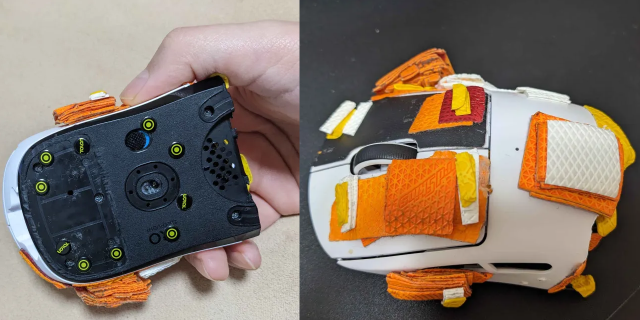
Incidentally, during my practice, I also studied anatomy and started doing machine machining and modifications.
Showing people pictures of my mouse usually gets a laugh.
Compared to other areas, my aim practice progressed at an unbelievably slow pace. So I memorized the names of hand joints, wrote down things like “which joint movement causes what mouse behavior,” and produced massive amounts of analytical writing.
Eventually, I scoured papers and researched extensively. The results revealed that “even the <turning over> motion has at least 19 distinct patterns of behavior.” “Multiple muscles are used for a single joint,” “Different muscles are used for flexion and extension,” and so on. I discovered the human body has a massive number of incredibly complicated, annoying specifications, far more than I ever imagined.
“Moving your hand” or “moving your fingers” are things anyone with a healthy body can do, but in reality, they are overwhelmingly complex and difficult.
Even something as fundamental as “just manipulating the hand” took an enormous amount of time to truly grasp its “basics,” and honestly, I still don't fully understand those fundamentals even now.
By learning to understand “which muscle moved just now” and “which joint was moved from which starting point,” I've managed to achieve some reproducibility in how I move my hand, but I'm still far from proficient.
----
Similarly, I suspect the very foundation of “thinking and writing sentences” is what makes it so difficult.
My hypothesis regarding this is that the way one focuses their thinking specifically, “when should moments requiring attention arise?” was not fully systematized during my time with limited “writing experience.”
Then, another hypothesis born from writing extensively and talking with people over time is this: “People have <desires>, and when they want to push through their own desires, there might be that ‘moment requiring attention’ mentioned earlier.”
Many people tend to overvalue things they've discovered or conceived, wanting to assert them more strongly than they actually are.
Regarding “wanting to assert strongly,” I am precisely that person right now, trying to write a long explanation about the concept of “desire” that I just discovered.
Desires themselves aren't inherently bad. Motivation, which spurs us to start or continue things, is also a form of desire.
Among many people with diverse thoughts, it's precisely because the desire “This has meaning” arises that some people engage in certain actions far more than others.
On the other hand, desires are usually extremely fragile and possess a significant weakness.
In driving, it's said that many people believe “I'm a better driver than others,” regardless of their actual skill.
Furthermore, data on the Dunning-Kruger effect shows that “people with an IQ of 120 overestimate their IQ by about +10 to 15 on average, those with an IQ of 100 overestimate by about +20 to 25, and those with an IQ of 80 overestimate by about 30 to 40.”
The desire for things to be a certain way or to turn out a certain way tends to inflate beyond reality.
Even now, past the 21st century, radical new religious movements continue to emerge because the power of these inflated desires is manipulated by their leaders.
For those who can control their desires and recognize their own desires, desires can be a significant positive force.
When desires motivate us to take action, understanding beforehand that “my desire might cause this kind of problem” allows us to prepare countermeasures.
It means we can think ahead, like “I might trip in this situation, so I'll get ready to break my fall.”
On the other hand, no matter how intelligent or capable a person is, if they cannot control their desires, they often cause major problems.
When the desire to “win” goes unfulfilled, lashing out excessively at others or imposing one's unilateral desires upon them creates discord.
‘Believing’ is also a form of desire. While fundamentally a virtue, it can sometimes be detrimental.
For instance, the desire to “bet now to profit” might lead someone to gamble away their family's money and future. If they fail, it usually spells disaster.
“Praying for others” is usually a beautiful thing, but sometimes it can become a way to impose one's own desires onto others.
----
I grasped this concept of “desire” at age 28. It wasn't until age 31 that I clearly recognized it and began discussing it with others and writing about it.
I've read countless writings by various people and written endlessly myself, yet it still took a considerable amount of time.
And recognizing this concept of desire has, so far, brought quite clear benefits.
When I fail at something, it's usually because my desires prevented me from seeing reality accurately.
The intensity of the pain is usually proportional to the strength of the desire.
At such times, if I can record the memory of that painful failure and confront the tendency of my desires, I can recognize the shape of my desires more clearly.
No matter how much you grow, things don't get easier, and you can't escape failure.
Getting used to failure and learning to repurpose it as material makes things proceed more efficiently.
This isn't some great discovery; in a few decades, some brilliant person will likely systematize it themselves and spread it around.
Or perhaps it's just my own lack of research maybe this systematization of desires already exists, and some university or educational institution is already working to disseminate it, or maybe I've simply overlooked clearly systematized literature.
Occasionally, tweets from English-speaking followers appear on my Twitter timeline. I run interesting-looking texts through translation, and sometimes they reveal a level of intelligence that would easily earn hundreds of thousands of dollars annually in Japan. It makes me feel the vastness of the world.
Just as “what schools teach can be figured out on your own,” “what you might figure out on your own has likely already been figured out by someone else.”
The reason I could write and read such vast amounts of text is because technology in this era has advanced that far. A significant number of people in this world can use machines to write and read text just like I do.
So, personally, I don't have any particular desire to spread this kind of story for the sake of the world. That said, in a minor space like this, I think it might be nice to write about the hypotheses I've pondered for years as article topics.
----
Now, this text was probably quite difficult to read.
After all, every time, the narrative veers off into another topic mid-sentence, and detailed explanations of that other topic are provided.
Unless you're good at remembering things or grasping the flow and context of a story, you'd probably be thinking, “What are we talking about now?”
(Actually, I sometimes write jokes intentionally like that, and the staff doesn't really look at my writing much either)
That said, jokes aside, I tried to write only the necessary explanations for what I considered to be fairly important topics.
There are two main points to this discussion: one is “the act of looking up game walkthroughs (Conclusion A)”, and the other is “the concept of ‘desire’ that exists when thinking (Conclusion B)”.
From my perspective, the former is quite closely related to the latter.
However, to discuss the latter, simply writing concisely feels a bit lacking in persuasiveness, so I included the point about “writing a lot of text (Evidence C for Conclusion B).”
That said, just saying “I write a lot of text” is something anyone could claim without evidence, and it's quite difficult to prove.
Therefore, I discussed “the evolution of technology over the past few decades, starting with typing (Evidence D for Evidence C).”
Then, I discussed “how the technology for writing in the past wasn't as developed as it is now, which was necessary to begin the concept of ‘desire’ (evidence E for conclusion B),” and further explained “how understanding the fundamentals is actually complex (evidence F for evidence E).”
In other words, roughly speaking, I wrote the text following this flow: Conclusion A → Conclusion B → Evidence C for Conclusion B → Evidence D for Evidence C → Evidence E for Conclusion B → Evidence F for Evidence E.
And while each piece of content has its own “context,” the specific points raised when explaining each conclusion/evidence have shifted to content quite different from what was previously discussed.
And what I've written so far probably covers only about 30-40% of the whole.
If I were to mention the content I originally intended to write about “the relationship between the player's landing point and their desires” the text would balloon dramatically.
(Honestly, I'm reasonably satisfied with this much, so I might just roughly wrap up the rest.)
Whether I'll split the remaining discussion into 2-3 parts depends on progress, or rather, whether I find other topics to cover. That's what I'm thinking for now.





